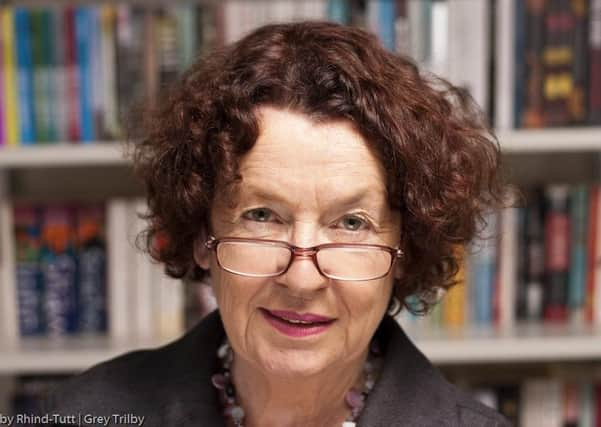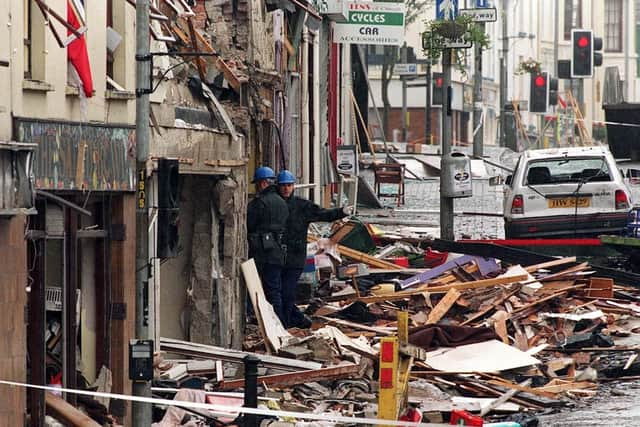Ruth Dudley Edwards: Years of IRA appeasement have distorted Northern Ireland’s justice system


In phone calls, people whose judgement, motives and deep understanding of history and politics I deeply respect tried to persuade me of the rightness of variations on two main positions: “This is utterly immoral,” or “It’s the best the victims can get”. They were honourable, they were eloquent and I lurched from side to side like a weathervane.
I reminded myself of a conflicted Boris Johnson in February 2016 sitting down to write one article pro and one anti Brexit in order to decide where he stood.
Advertisement
Hide AdAdvertisement
Hide AdHe has been ridiculed a lot over that, but I thought it a sensible course of action for a writer. Sometimes I can’t make up my mind about complicated issues until I clear my mind by writing about them.


And what is absolutely at the centre of my thoughts today are the victims — the murdered, the injured, the bereaved and the traumatised, and whether there can be any justification for taking hope away from them.
From early in 2000 I became involved with victims of the Omagh bomb who had been ill-served by the justice system and who with an enormous amount of help from outsiders managed to launch a civil case against the bombers the criminal justice system had failed to deal with.
I had years of being told I was wasting my life on this and that “these people should give up and move on.”
Advertisement
Hide AdAdvertisement
Hide AdIt seemed as if what the establishment wanted more than anything was for victims just to shut up and disappear.
In 2008, in Northern Ireland, after the civil case gone to court, I had a chat with the then Labour MP and ex-Minister Clare Short just before we did a TV political show together.
I had just heard from the ex-policeman taxi-driver who had delivered me to the studio a terrible story about Sergeant Stephen Buttle, a colleague who had worked in the RUC Body Recovery and Identification Team and spent 24 hours on duty in the Omagh morgue dealing with dead bodies and their desperate relatives.
Utterly traumatised and with his work and home life deteriorating, he took his own life in horrific circumstances.
Advertisement
Hide AdAdvertisement
Hide Ad“What are you doing now?” Clare asked, so I told her about the Omagh case. She looked at me with what seemed like a mixture of impatience and pity: “Why pick at the scabs?”
After listening to victims giving evidence in court during their civil case, the historian Liam Kennedy — who has spent much of his adult life campaigning for victims at the bottom of the heap, particularly the thousands of mostly children and young adults crippled and mutilated by the paramilitaries who ruled their areas — was particularly struck by hearing about “the terrible and additional pain of seeing and hearing spouses, children, siblings, friends overwhelmed by grief, sobbing in their bedrooms, in the garden, or in public places like the supermarket. Astonishingly, there is also the hate.”
And indeed there is. For a feature of the horrors endured by many in Northern Ireland is that in addition to the terrible grief of loss, they have had to endure seeing their loved ones demonised by people who eulogise their murderers.
As that great analyst of fanaticism, Eric Hoffer, explained, “there is an intimate connection between hatred and a guilty conscience…[and] the most effective way to silence our guilty conscience is to convince ourselves and others that those we have sinned against are indeed depraved creatures, deserving every punishment, and extermination.”
Advertisement
Hide AdAdvertisement
Hide AdIt is for that reason that all talk of a truth and reconciliation process is nonsense. Soldiers and loyalists sometimes tell the truth: the IRA and its Sinn Fein supporters never will.
All their guilty consciences let them do is trash those they wronged. So every time you see Sinn Fein luminaries describing the British Army and the UDR as murderers remember the statistics of Troubles deaths: republican paramilitaries were responsible for 59%, their loyalist equivalents 29%, and the security forces 10% — of which most were legal.
The army killed lost 503 and killed 239, the RUC lost 303 and killed 50, and the UDR lost 206 and killed eight.
I hope interviewers will be pointing to Sinn Fein spokesman as this row continues that paramilitaries were very fortunate to be opposing such law-abiding agents of government.
Advertisement
Hide AdAdvertisement
Hide AdStarting with Blair, appeasement of the IRA — tolerated by the DUP as they split power — led to a shocking distortion of the justice system.
As my colleague Ben Lowry, says, “Anyone who wants this amnesty to be overturned needs to be realistic about the fact that it is those former soldiers and police officers who will bear an undue burden.”
Yet many ex-members of the security forces fiercely resist the notion of being part of an amnesty that gives them moral equivalence with terrorists.
So no, I don’t yet know what I think, but I’ll be listening.
Advertisement
Hide AdAdvertisement
Hide Adl Ruth Dudley edwards is the author of The faithful Tribe: an intimate portrait of the loyal institutions
——— ———
A message from the Editor:
Thank you for reading this story on our website. While I have your attention, I also have an important request to make of you.
With the coronavirus lockdown having a major impact on many of our advertisers — and consequently the revenue we receive — we are more reliant than ever on you taking out a digital subscription.
Subscribe to newsletter.co.uk and enjoy unlimited access to the best Northern Ireland and UK news and information online and on our app. With a digital subscription, you can read more than 5 articles, see fewer ads, enjoy faster load times, and get access to exclusive newsletters and content. Visit https://www.newsletter.co.uk/subscriptions now to sign up.
Advertisement
Hide AdAdvertisement
Hide AdOur journalism costs money and we rely on advertising, print and digital revenues to help to support them. By supporting us, we are able to support you in providing trusted, fact-checked content for this website.
Ben Lowry
Acting Editor